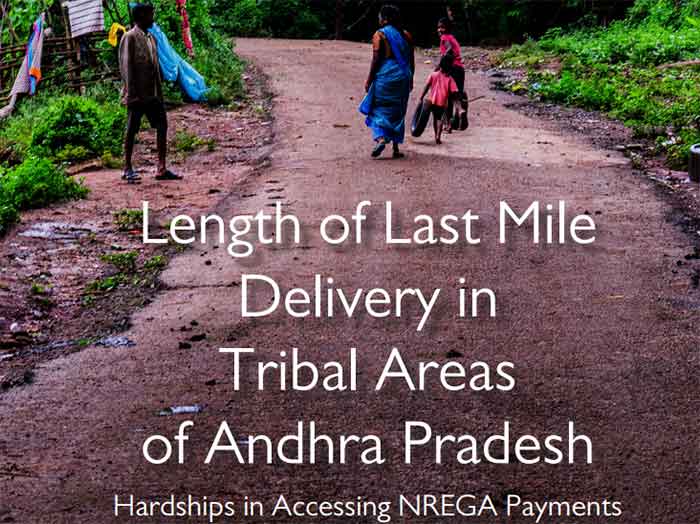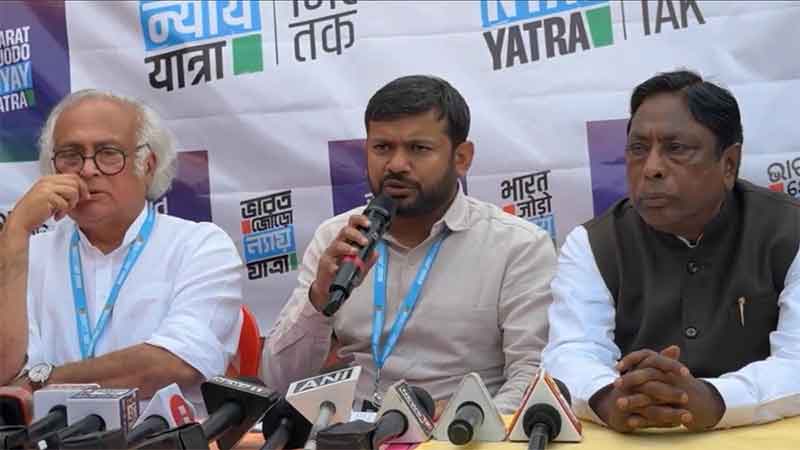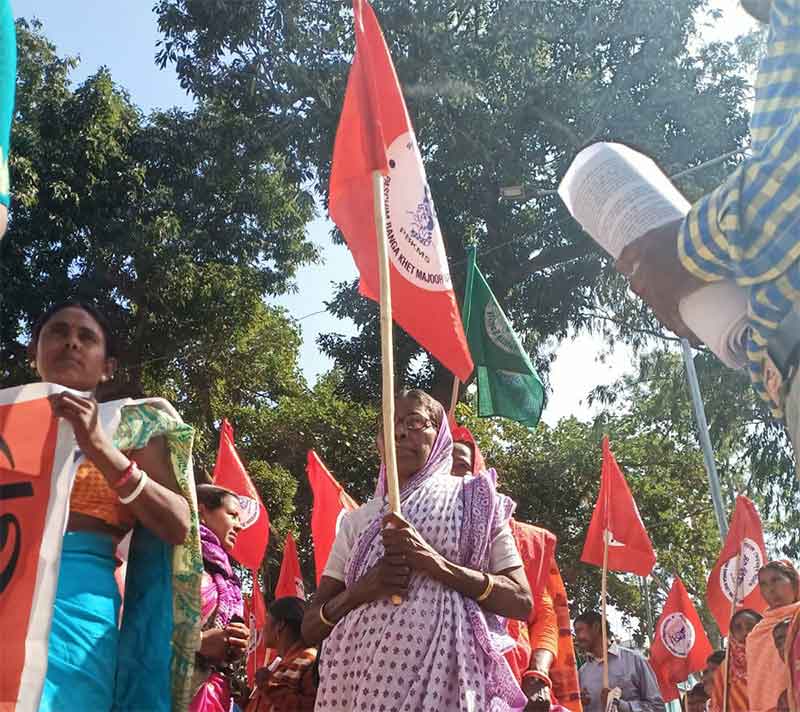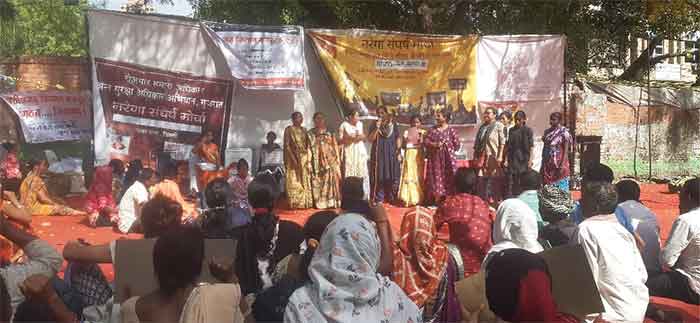Report by Libtech- To what extent GOI’s Centrally Sponsored Schemes (NREGA etc.) are effective at the ground level?

To
Smt Nirmala Sitharaman
Union Finance Minister
Dear Smt Sitharaman,
Over the last few years, there has been a proliferation of Centrally Sponsored Schemes (CSS) taken up by different Central Ministries, resulting in an undue increase in the amounts directly deposited in individual beneficiaries’ accounts through Aadhaar-linked bank accounts. Such fund transfers from the divisible pool of revenues are under Article 282 of the Constitution, outside transfers subject to the norms prescribed by the Finance Commission (FC).
For example, in 2014-15, the CSS fund releases under Article 282 constituted only 7.5% of the gross fund transfers to the States in that year. In contrast, in the Budget estimates for 2023-24, the corresponding proportion has increased steeply to 48%. If this trend were to continue, the day is not far off when discretionary grants from the Centre to the States, mostly to individual beneficiaries, will eclipse the rule-based transfers, diminishing the role of the FC. If this happens, very little political space will remain for the States, with the governance system becoming more unitary than federal, a prospect that runs counter to the basic structure of the Constitution.
The CSS schemes unilaterally formulated by the Centre ignore State-specific priorities and regional diversities, apart from the fact that they marginalise oversight by the States and the local elected bodies, which are expected to play an important role under the Constitution.
All direct bank transfers (DBTs) under the CSSs are critically dependent on the individuals’ Aadhaar identities linked to their bank accounts.
According to a Lok Sabha reply given by the concerned Ministry on 26-7-2017 (Parliament Question No. 1761), there are 314 CSSs administered by 51 Central Ministries linked to Aadhaar (/https://uidai.gov.in/images/loksabha/LS1761.pdf). According to the 2023-24 Budget, the total allocation for the CSSs is as high as Rs 4,76,105 Crores. While the concerned Ministries may successfully transfer monetary benefits to individuals’ bank accounts, what travails do beneficiaries face in encashing them?
Have the amounts got deposited in the correct bank accounts? Is there a possibility of such accounts being hacked, as Aadhaar linkage is sometimes vulnerable to hacking? Does the information about an amount under a given CSS being credited to his/her account flow instantaneously to the beneficiary, as it should? How easy is it for a beneficiary to encash the benefits and how long does it take? Does the beneficiary have to spend money (to pay intermediaries) and time (lost wages) to encash the benefit?
In the absence of adequate feedback systems, there is no way that individual Ministries can find answers to the above questions. It is therefore doubtful whether the total budgetary CSS allocation of Rs 4,76,105 Crores during 2023-24 would be used effectively. It is possible that there are direct and indirect losses in such an inadequate delivery system.
Had the Finance Ministry allocated even 0.5% of the total CSS allocation, which works out to more than Rs 2,000 Crores, for bridging the last mile of the delivery system for the CSSs, it would have saved far more by plugging the loopholes.
The problems with the delivery of the CSS benefits are far more worrisome in the case of remote areas, where the banks’ outreach is limited, connectivity is poor and computer literacy is inadequate.
In this connection, I have had an opportunity to discuss one well-researched report on the delivery system (accessible at http://libtech.in/wp-content/uploads/2023/07/LOLM_Tribal_AP_English.pdf) based on an excellent survey conducted by an NGO, Libtech on the problems faced by individual beneficiaries in drawing their wages under the MGNREGA scheme for the labour already put in by them. Libtech conducted the survey in the area covered by the Paderu Integrated Tribal Development Agency (ITDA) in ASR district of Andhra Pradesh (AP). I had an opportunity to interact with the Libtech team that works closely in the tribal areas of AP and also several others who work similarly in the tribal areas.
Some of the important findings that emerge from the Libtech study are
- While the CSS amounts are transferred instantaneously to the individuals’ bank accounts, less than half the beneficiaries come to know of the amounts credited within a reasonable timeframe. Their passbooks are rarely updated. SMS messages are in English, which most beneficiaries do not understand. Many beneficiaries who do not own mobile devices have to depend on others for help. The information about wage payment is not made available in the public domain where the beneficiaries can access it readily.
- The majority of the beneficiaries neither use bank branches nor ATMs for drawing their wages. Those who use the available facilities are forced to undertake multiple visits to banks/ business correspondents/ customer service points, which forces them to lose wages equivalent to 1-2 days, in addition to incurring avoidable expenditure on travel, payment of commissions to intermediaries etc. Very few beneficiaries use ATMs.
- While the NREGA Act mandates payment of wages within 15 days, beneficiaries face inordinate delays, which amounts to a violation of the Act.
- The existing grievance redressal system, based on individual beneficiaries filing written complaints and waiting for relief, has not helped. In most remote areas, where people are diffident and are compelled to depend on intermediaries to fill in the prescribed complaint form, the authorities need to reach out to solve their problems rather than expect the beneficiaries to come forward.
- In most DBT fund transfers, public accountability seems to be diffused, with the Central Ministries washing their hands off once funds are transferred, the States and the local elected bodies by and large kept out of the picture. In areas notified under the Fifth Schedule to the Constitution, as in the case of Paderu ITDA, the Panchayats (Extension to the Scheduled Areas) Act (PESA) empowers the local tribal Gram Sabhas to be involved directly in the implementation of schemes that affect the tribals’ lives but most CSSs ignore their role. The flow of funds under CSSs should empower the Gram Sabhas, not dilute their role. This applies equally to non-tribal areas as well, as Panchayats and Gram Sabhas throughout the country are Constitutional bodies.
The Libtech report elaborates its findings in more detail, which in my view, needs to be studied by your Ministry in consultation with the other Ministries so that the last-mile delivery system could be streamlined to ensure that there is greater transparency, efficiency in realising the expected outcomes and accountability.
As I have pointed out, even a 0.5% of the amount allocated for the CSSs this year should suffice to put in place a system that will bridge the last-mile gap.
Where the electricity supply is erratic, why not install stand-alone power supply systems? To improve internet connectivity, in addition to relying on towers alone, can the concerned Ministries consider using satellite communication systems? If a beneficiary does not own a mobile device, can it not be provided as a part of the scheme with recurring connection charges included? Some States are delivering foodgrains and other rations at the beneficiaries’ doorstep. Why not introduce a secure system of delivering wages under MGNREGA directly to the beneficiaries? Why does not the government insist on placing in the public domain, information on amounts deposited in individuals’ bank accounts periodically, at places accessible to them, for example, at specified places in villages and weekly fairs which most people visit? Can the government adopt mobile communication technologies that make it possible to convey messages in local languages instead of English? Why not also activate the Panchayats and Gram Sabhas to oversee the delivery of benefits under the CSSs and also train local youth to enable them to become internet-literate so that they can help the beneficiaries?
Ground-level oversight of the implementation of schemes in the full view of the people is the best way to enhance public accountability and proper utilisation of funds.
Schemes such as MGNREGA represent the Constitutional rights of the people, not charity to be dispensed by the government. Article 19 of the Constitution and the Right to Information Act confer on the citizen the right to know. I am afraid that MGNREGA and other similar Constitutionally mandated schemes tend to dilute that right.
There used to be independent social audits for CSSs in the past but, of late, their importance has declined, as CSSs have become instruments of securing political space, rather than a genuine way to empower the people. There are very few NGOs that can conduct such audits in a professional manner. There are far fewer number who work in remote areas like ITDAs. Some portion of the amount spent on CSSs needs to be placed at the disposal of an independent body to train and groom such NGOs who in turn can remain independent enough to present the facts. Then and then only, the government will be in a position to take note of the deficiencies in implementing its schemes and bring in improvements on a continuing basis.
May I, therefore, call upon the Finance Ministry to access the Libtech report as the starting point and consider streamlining the delivery systems urgently?
Spending Rs 4,76,000 Crores of public funds calls for commensurate public accountability!
Regards,
Yours sincerely,
E A S Sarma
Former Secretary to the Government of India
Visakhapatnam
















































